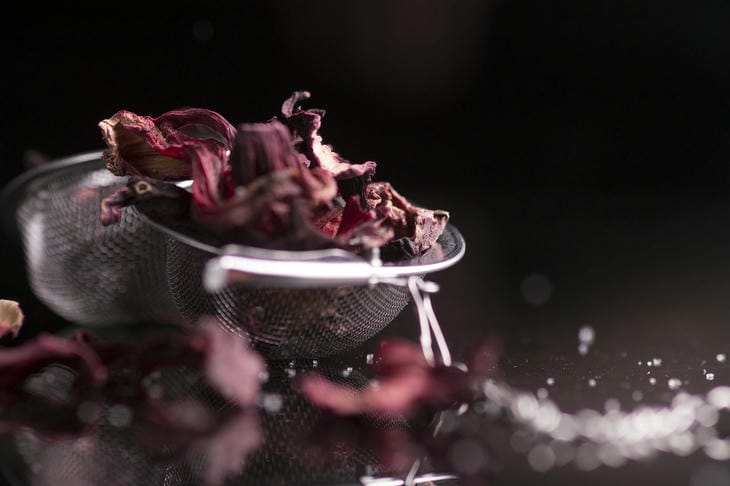From Ancient Egypt to the Present Day: The Benefits of Hibiscus Tea
"The drink of the pharaohs" was the name given in Ancient Egypt to tea obtained from hibiscus petals.
Nowadays it is better known as hibiscus and is highly valued by fans of healthy eating and those who like to try new drinks and teas.
Why has hibiscus tea earned such popularity? Is it healthy to drink it and who should refrain from drinking this tea?
The infusion of hibiscus petals, which arrived from the plantations of India and Sri Lanka, was drunk by ancient Egyptian nobles, who attributed to it the property of restoring vitality and strengthening the body. And they were right: hibiscus really does help with some ailments.
For example, it is recommended to drink it in case of food poisoning and hangover syndrome to reduce the effect of toxins on the liver.

Hibiscus tea can also remove excess fluid and provide relief from constipation. In summer and winter, hibiscus quenches thirst and can be useful for colds.
It is not so difficult to choose high-quality raw materials for brewing it: it is better to buy hibiscus by weight and check the dryness of the petals before purchasing. If they crumble when rubbed in your fingers, the tea is good and was dried correctly.
The bright ruby color of Sudanese rose tea (as hibiscus is called) and its sour taste are due to the large amount of anthocyanins and organic acids.
The former provide the body with antioxidant protection, strengthen blood vessels and prevent the formation of cholesterol plaques on their walls, while the latter improve metabolism, helping fats to break down more effectively.
Women on a diet can drink hibiscus, since a serving of this drink contains no more than 5 calories. And by freezing the brewed tea in molds, you can easily get cosmetic ice for wiping your skin.
Hibiscus tea contains many minerals and vitamins: ascorbic acid, B vitamins, selenium, magnesium, and iron.
It is recommended for athletes and people experiencing increased physical and mental stress to maintain the overall tone of the body and recover faster.
Another advantage of hibiscus tea is the absence of caffeine. It is acceptable to give it to children in small quantities as a thirst quencher.
If you have high blood pressure, you should drink chilled hibiscus infusion, and if your blood pressure is low, hot hibiscus tea will help.
And in what cases is it better to reduce its consumption or completely refuse such tea?
It is normal for healthy people to drink two to three cups of hibiscus per day, but if you have a history of gastritis, increased tooth sensitivity or pregnancy, it is better to consume the drink with caution.
The fact is that in large quantities it can provoke contractions of the uterus in women "in position", and the acid content in tea has a bad effect on the stomach and teeth.
Like any other food product, hibiscus tea is a potential allergen. Therefore, if you are prone to allergic reactions, especially in children, you should introduce hibiscus tea into your diet very carefully.
For reference
Hibiscus is a herbal tea drink of bright red or burgundy color, sweet and sour in taste, made from dried cups of roselle flowers, or Sudanese rose, a plant of the genus Hibiscus.
